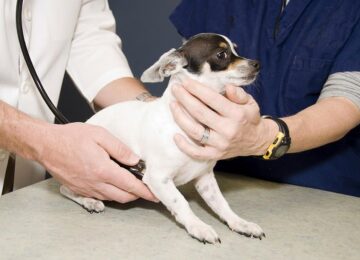When Sarah got her Bernedoodle puppy, Max, she was over the moon. Little did she know, the bundle of joy would come with a set of health challenges. Bernedoodles, a mix of the Bernese Mountain Dog and the Poodle, are beloved for their friendly temperament and hypoallergenic coats.
However, like any breed, they have particular health issues. Understanding these issues and knowing how to prevent them can help ensure your Bernedoodle lives a long, healthy life. This blog aims to provide comprehensive information on common health issues in Bernedoodles and actionable tips for prevention.
Understanding the Bernedoodle Breed
Origin and Traits
Bernedoodles are a relatively new hybrid breed, combining the best traits of the Bernese Mountain Dog and the Poodle. Bernese Mountain Dogs are known for their gentle, calm nature, while Poodles are celebrated for their intelligence and low-shedding coats. The result is a lovable, often hypoallergenic companion.
Physical Characteristics
Bernedoodles can vary in size, from the small Toy Bernedoodle to the larger Standard Bernedoodle, depending on the size of the Poodle parent. They typically have wavy or curly coats that require regular grooming. Their sturdy build and playful nature make them excellent family pets, but their size and energy levels can impact their health.
General Health Overview
Generally, Bernedoodles are healthier than their purebred parents due to hybrid vigour. However, they can still inherit health issues common to Bernese Mountain Dogs and Poodles. Regular vet check-ups and a healthy lifestyle are crucial for maintaining their well-being.
Common Health Issues in Bernedoodles

Hip Dysplasia
Hip dysplasia is a heretic condition where the hip joint doesn’t fit correctly into the hip socket. This misalignment can cause pain and arthritis over time. Look out for limping, difficulty rising, and reluctance to exercise.
Maintain a healthy weight and provide regular, moderate exercise. Avoid activities that put excessive strain on the hips, especially during the puppy’s growth period. Options include weight management, physical therapy, pain medications, and in severe cases, surgery.
Elbow Dysplasia
Elbow dysplasia involves the abnormal development of the elbow joint, leading to arthritis and pain. Symptoms include front limb lameness, joint swelling, and a reluctance to play or exercise.
Ensure proper nutrition and avoid over-exercising young puppies. Choose breeders who screen for elbow dysplasia. Treatment can range from anti-inflammatory medications and weight management to surgical intervention in severe cases.
Progressive Retinal Atrophy (PRA)
PRA is a group of genetic diseases that cause the retina to degenerate, leading to blindness. Early symptoms involve night blindness and dilated pupils. Genetic testing of breeding pairs can prevent the disease.
Select breeders who test for PRA. While there is no cure, managing a dog’s environment to prevent injury can help. Regular eye check-ups are crucial and therefore you should not ignore that to prevent further increase in the problem.
Von Willebrand’s Disease
This is a bleeding disorder caused by a deficiency of von Willebrand factor, a protein essential for blood clotting. Symptoms include excessive bleeding from minor wounds and spontaneous bleeding from mucous membranes.
Genetic screening before breeding can prevent this condition. With veterinary guidance, manage the condition by avoiding activities that could cause injury and using medications to promote clotting when necessary.
Bloat (Gastric Dilatation-Volvulus)
Bloat is a severe and potentially fatal condition where the stomach becomes filled with gas and twists, blocking blood flow. Look out for symptoms like a swollen belly, unsuccessful attempts to vomit, and signs of discomfort or agitation.
To reduce the risk, feed your Bernedoodle smaller portions more frequently and avoid letting them engage in intense physical activity right after meals. Bloat demands immediate medical attention. If you think your dog might be experiencing bloat, rush them to the veterinarian without delay. Surgery is often necessary to resolve this condition and save your dog’s life.
Hypothyroidism
Hypothyroidism occurs when the thyroid gland doesn’t produce enough hormones, affecting metabolism. Symptoms are weight gain, lethargy, and coat changes. Regular health check-ups and thyroid function tests can help detect the condition early.
Management with medication and dietary adjustments can help maintain normal thyroid levels. So make sure as soon as you find the symptoms, start the prevention measures and treatment.
General Preventive Measures
Regular Vet Check-Ups
Routine veterinary visits are crucial for early detection and prevention of health issues. Schedule check-ups at least once a year for adults and more frequently for puppies and senior dogs. Ensure vaccinations are up to date.
Balanced Diet and Nutrition
Bernedoodles require a balanced diet rich in proteins, fats, and carbohydrates. Essential nutrients include omega-3 fatty acids for coat health and joint supplements for mobility. Feeding high-quality, breed-appropriate dog food can prevent many health issues.
Avoid foods with fillers and artificial additives. Joint supplements, probiotics, and vitamins can support overall health and well-being and prevent issues like joint dysplasia and digestive problems.
Exercise and Mental Stimulation
Bernedoodles are active dogs that require regular exercise to stay healthy. Daily walks, playtime, and mental stimulation are essential. Activities like puzzle toys, obedience training, and socialisation with other dogs provide mental enrichment and prevent boredom-related behaviours.
Grooming and Hygiene
Regular grooming, including brushing and bathing, is essential for Bernedoodle puppies. It prevents matting and skin issues. Maintaining good hygiene, such as cleaning ears and teeth regularly, helps prevent infections and dental problems.
Genetic Testing and Responsible Breeding
Genetic testing can identify potential hereditary diseases and prevent them from being passed to future generations. Select breeders who prioritise health by conducting genetic tests and following responsible breeding practices. Prevent breeders who do not give health clearances.
Conclusion

Overall, while Bernedoodles are generally healthy dogs, they are prone to certain health issues. By understanding these common problems and taking preventive measures, you can ensure your Bernedoodle leads a happy and healthy life. Stay vigilant and proactive about your Bernedoodle’s health. Regular vet visits, a balanced diet, proper exercise, and good grooming habits are key to preventing health issues.
Start implementing these tips and techniques today to keep your Bernedoodle in optimal health. Share your experiences and tips with other Bernedoodle owners, and consult your veterinarian for personalised advice. By following these guidelines, you can enjoy many happy, healthy years with your beloved Bernedoodle.












